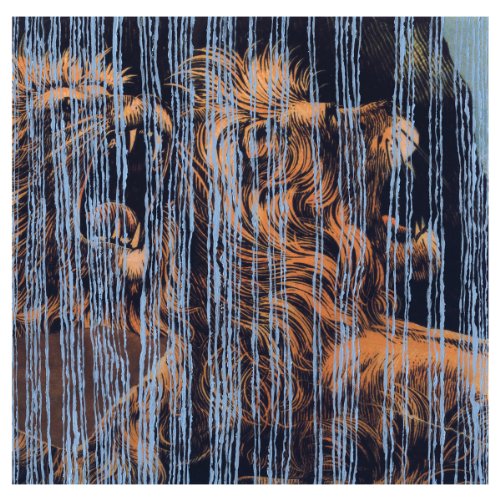
Julian Lynch
Lines
Release Date: Mar 26, 2013
Genre(s): Pop/Rock, Alternative/Indie Rock, Indie Rock, Indie Pop, Neo-Psychedelia
Record label: The Orchard Records
Music Critic Score
How the Music Critic Score works
Buy Lines from Amazon
Album Review: Lines by Julian Lynch
Very Good, Based on 9 Critics
Based on rating 80%%
Julian LynchLines[Underwater Peoples; 2013]By Colin Joyce; March 27, 2013Purchase at: Insound (Vinyl) | Amazon (MP3 & CD) | iTunes | MOGAs a human being, Julian Lynch very carefully balances two worlds. By day he's a PhD candidate at the University of Wisconsin, Madison, delving into Anthropology and Ethnomusicology (an anthropologically minded discipline that studies music through its cultural, social, biological contexts rather than the sound of the music itself). Lynch's own work within the field reportedly focuses on "musical practices in colonial and contemporary India.
Based on rating 8/10
One of the first things mentioned in a lot of press about Julian Lynch is that he's been working for a long time in a Ph.D. program in ethnomusicology. It might seem like lazy journalism if the multi-instrumentalist's albums weren't so richly arranged with a palette of sounds that suggests the deepest delving into understanding a wide array of styles, timbres, and textures.
Based on rating 78%%
Perhaps if a young Nino Rota had been limited to a tape recorder, synthesizers, saxophones and whatever else he found lying around his apartment, Federico Fellini’s films might sound like certain moments in Lines. Julian Lynch’s music lacks the bombast of that composer’s works, but is similarly raucous, mysterious and full of whirling joy. Each song seems driven by its own organic engine, capturing that hovering feeling of glad emptiness after the passing of a psychic storm—a death, a breakup, a journey or any trying encounter with life’s brunt.
Based on rating B
As per Julian Lynch’s MO, Lines sounds like a musical prodigy rubbing up against the “wrong” crowd, discovering drum circles and worn psych records when he should be woodshedding in the practice room. Through three LPs and various other releases, we’ve watched Lynch come to terms with that written/rote dichotomy, making home recorded music both oblique and comprehensible. On Lines, Lynch’s fourth full-length and second for the Underwater Peoples label, he’s more ecstatic, focused, and fun than ever, recalling Lindsay Buckingham’s bright acoustic plucking, the ramshackle wanderings of The Brian Jonestown Massacre, the energetic psych-funk of Bibio, and the carefree commune instrumentation of Karl Blau.
Based on rating 7/10
On first listen, a Julian Lynch record can be a perplexing challenge. He will certainly not make it easy for you. That’s because the studious New Jersey native embraces, at least in spirit, the free-form, avant-leaning oddities of seventies prog. A bevy of unrestrained arrangements and improvised sub-sections shape shift without a moment’s notice, trying to assimilate something close to actual ‘songs’.
Based on rating 7.0/10
The experimental folk music of Julian Lynch, spread out over a handful of cassette releases, singles, and now four proper albums, is unfailingly polite. In an installment of Pitchfork's "5-10-15-20" series, Lynch even hinted that it had to be that way because he didn't want to annoy his neighbors. It's work that tiptoes gingerly into the world, and there's something endearing about that, indicating a lack of confidence, perhaps, or an intuitive reflex to stick a few barriers between himself and the world that he can't dislodge.
Based on rating 6/10
Julian Lynch has always sort of hinted at vibe with his album titles. Despite the inherent hush of his sound, Mare move gracefully forward over the soft ground of Lynch’s not-quite-folk leanings. Terra did indeed feel slightly more grounded, if still opaque, than its predecessor. But Lines has no inherent boundaries.
Based on rating 6/10
It's hard to believe that it's barely been three years since Julian Lynch put out his breakthrough album, Mare. A captivating release that showcased Lynch's unique brand of home-recorded, psychedelia-tinged alternative folk, it was followed by the equally impressive and even more immersive Terra. The draw with Lynch's music has always been the contrasting tensions: lo-fi recordings filled with baroque arrangements; his vocal style understated and often half-mumbled, yet the melodies sweet and direct.
Based on rating 2.0/5
Julian Lynch is an academic, a longtime PhD student in ethnomusicology, and unfortunately, his music displays the unwelcome traits expected in music borne of over-thinking: rigid, overtly meticulous, and far too concerned with pointing to outside influences. On Lines, Lynch continues to lurk on the folkier, more hushed side of contemporary indie music. As with his previous album, Terra, he steadily burrows deeper into an aesthetic vein spawned from what seems like an infatuation with Jim O' Rourke's work, especially The Visitor.
'Lines'
is available now

